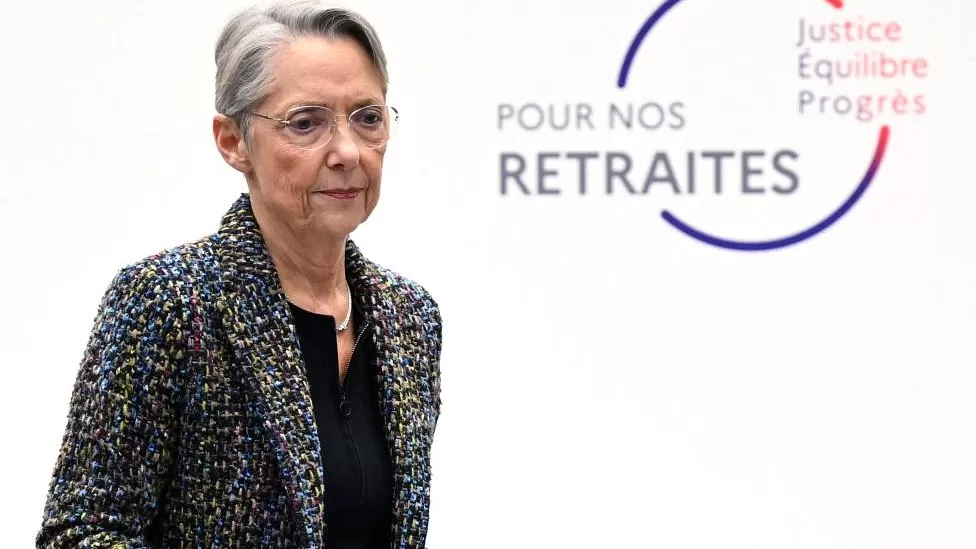France’s government has proposed raising the legal retirement age from 62 to 64 by 2030 in a major reform to the pension system.
PM Elisabeth Borne said the changes were necessary to prevent a major deficit in the system in the future.
Reforming pensions was one of President Emmanuel Macron’s main promises when he was first elected in 2017.
But the details immediately triggered an angry response from the unions, with plans for strikes on 19 January.
Ms. Borne’s handling of an explosive reform was cautious, as she announced the proposals at a news conference.
She was careful to emphasize the gradual, progressive nature of the planned changes, with extra support for those on the lowest pensions.
But, as she admitted, the reform “will spark fears and questions among the French people”.
A recent poll suggests 80% of the population is opposed to pushing the retirement age back to 64. Some MPs even blame Mr. Macron’s policy for losing his party its parliamentary majority last year.
Doing nothing about projected deficits for the pension system would be “irresponsible”, Ms Borne said.
“It would lead inevitably to a massive increase in taxes, a reduction in pensions and would pose a threat to our pensions system.”
The retirement age will be raised gradually by three months a year, starting in September, she explained. By 2027 it would reach 63 years and 3 months, and the target age of 64 in 2030. The proposals include:
- A full pension from 2027 will require working for 43 years (instead of 42 years currently)
- Guaranteed minimum pension income of not less than 85% of the net minimum wage, roughly €1,200 (£1,060) per month at current levels, for new retirees
- Police officers, prison guards, air traffic controllers, and other public workers in jobs deemed physically or mentally arduous will keep the right to retire early
- Their retirement age will be increased by the same number of years as the wider labor force
- End to so-called “special regimes” with different retirement ages and benefits for rail workers, electricity, and gas workers, among others.
Pensions have always been a key part of President Macron’s vision for reforming France. But his plans were disrupted – first by widespread protests; then by Covid. Now in his second and final term in office, this is perhaps his last chance to get the job done.
Public sector workers, who have been quick to resist Mr. Macron’s reforms before, are among those with the most to lose. New entrants will not be eligible for the special pension regimes enjoyed by their predecessors.
Hard-left political leader Jean-Luc Mélenchon, head of the France Unbowed party, described the proposal as amounting to “severe social regression”, while far-right leader Marine Le Pen said she intended to block an “unjust reform”.
It is not that the French don’t see the need for reform – almost half say the system needs to change to secure its future.
The government said the reforms would balance the pension budget and represent gross savings of €17.7bn a year by 2030.
Finance Minister Bruno Le Maire said the measures would also boost the employment rate among 60-64 year-olds which is low compared with other European countries.
But the timing is bad: the cost-of-living crisis is biting hard. And Mr. Macron has an image among some here as aloof and out of touch with French people. Polling suggests that a vast majority don’t trust the government to be fair or effective in the reforms they choose.
The proposed changes are set to be examined early next month in parliament, where the government does not have an absolute majority.











